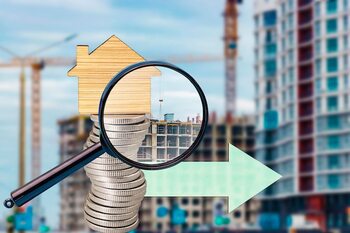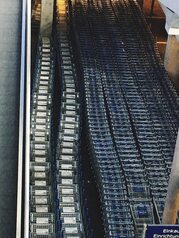The influence of the educational environment on real estate value

The location of a property is fundamental, but how important is the educational environment in the equation of appreciation? In this article, we will explore how nearby schools and universities can significantly increase property values. A good educational system not only attracts families but also translates into a more appealing community environment. Discover how educational quality impacts your real estate investment and why you should consider it when buying or selling.
1. The connection between schools and added value: why does it matter?
The connection between schools and added value is a determining factor in the real estate market. Properties located near quality educational institutions tend to have higher demand, as families value proximity to good schools for their children. This phenomenon not only translates into increased interest from potential buyers but can also result in higher prices when it comes time to sell. The perception that an area has a strong educational system creates an additional appeal that drives up the added value of surrounding properties.
Furthermore, the impact of the educational environment goes beyond mere proximity to schools. Neighborhoods with good educational ratings tend to be better maintained and offer a variety of community services, which fosters the creation of strong social networks among residents. This collaborative environment promotes a positive and safe lifestyle, which in turn attracts more families and investors. Thus, when evaluating real estate value, considering the quality of the educational environment becomes a smart strategy to maximize your long-term investment.
2. Educational factors that affect real estate value.
One of the most determining factors in real estate value is the educational quality of nearby institutions. Families seek to settle in areas where they can access good schools, as this not only ensures a higher education for their children but also influences their social and emotional development. When a neighborhood has well-regarded schools, it becomes a desirable place to live, which in turn drives housing demand and elevates market prices. The perception of educational quality can be a significant attraction for potential buyers, making properties in those areas maintain or even increase their value over time.
Moreover, the educational environment is not limited to primary and secondary schools; universities also play a crucial role. Areas near higher education institutions often experience greater economic and cultural activity, attracting both students and young professionals. This influx creates a vibrant dynamic in the community, fostering the establishment of local businesses and improving the overall infrastructure of the area. Consequently, properties located near universities tend to have a higher value due to the ongoing appeal they represent for tenants and investors. Therefore, considering access to and the quality of the educational environment is essential for anyone interested in making a smart real estate investment.
3. Comparison between areas with different educational qualities.
The educational quality of an area is a determining factor in real estate value, as it directly influences families' purchasing decisions. In areas with highly rated and recognized schools, property prices tend to be higher. Statistics show that homes near well-rated educational institutions often experience greater appreciation over time. This is because many parents prioritize their children's education when choosing a place to live, creating a constant demand for these properties.
On the other hand, in areas where educational quality is lower, real estate values can be negatively affected. The lack of competitive schools can lead to less interest from potential buyers, which translates into stagnant prices or even a decrease in property values. Furthermore, the educational environment not only affects families with children; it also impacts the overall demographic profile of the community, as areas with good schools tend to attract young and dynamic professionals. Thus, a positive cycle is created where the continuous improvement of the educational environment raises both the academic level and the interest in living in those locations.
4. How to assess the educational quality in your area.
To assess the educational quality in your area, it is essential to consider various factors that can influence the academic performance of nearby institutions. One of the most relevant aspects is the rating and reputation of local schools and universities, which can often be checked through rankings and standardized evaluations. Additionally, it is valuable to research the graduation rate, the level of preparation for higher education, and the extracurricular opportunities that these institutions offer. A robust educational environment not only enhances student learning but can also significantly increase the demand for properties in its proximity.
Another key element in assessing educational quality is the participation and involvement of parents and the community in general. Schools with a high degree of collaboration among parents, teachers, and students tend to provide additional support that benefits students. It is also helpful to observe if there are community initiatives related to education, such as tutoring programs or workshops for parents, as these efforts often reflect a commitment to the overall development of the student body. By evaluating all these aspects, you can gain a clearer understanding of the positive impact that a good educational system can have on property values in your area.
5. Impact of access to higher educational institutions.
Access to higher educational institutions is a determining factor in the valuation of properties. Prestigious universities and colleges not only attract local students but also generate a steady flow of potential tenants, such as young professionals and academics seeking housing. This creates sustained demand in the real estate market, which can result in a significant increase in the value of nearby properties. Furthermore, the presence of these institutions is often accompanied by quality infrastructure and improved services in the area, further enhancing the neighborhood's appeal.
Additionally, access to higher education institutions positively influences the overall perception of the area. Families often prioritize living near good schools and universities, as this not only ensures a solid education for their children but also provides future job opportunities. This quest to reside in areas with high educational quality fosters more cohesive and safer communities, which translates into greater satisfaction among residents. Consequently, real estate buyers and investors should consider these factors when assessing the potential for property appreciation, understanding that the educational environment is a crucial component for securing their long-term investment.
6. The role of local educational policies in surplus value.
Local educational policies play a crucial role in the appreciation of properties, as they not only determine the quality of the educational system in a community but also contribute to the overall perception of the area. When a municipality invests in educational infrastructure, such as new schools or academic programs, it can attract families looking for a favorable environment for their children's development. In turn, these investments create a positive domino effect: more families move to areas with good schools, which raises the demand for housing and, consequently, increases real estate prices.
Moreover, effective educational policies can influence the reputation of a community. Those localities that set high standards for their educational institutions are often seen as desirable places to live. This directly impacts property values; buyers are willing to pay more for a home located near well-rated schools and recognized educational programs. The decisions made by local authorities regarding funding and school development are thus decisive factors not only for the social and educational well-being of residents but also for long-term economic growth and real estate appreciation.
7. Buyer testimonials: experiences with educational environments.
Buyer testimonials about their experiences in educational environments reveal the deep connection between the quality of nearby institutions and the value of their properties. Many new homeowners emphasize how their choice of residence was influenced by the reputation of local schools. For example, families with young children often seek neighborhoods with highly rated schools, as they know this will not only ensure a solid education for their children but also contribute to a greater appreciation of the property over time. These accounts reflect a common trend: buyers are willing to pay more for homes in areas where they can access a recognized and respected educational system.
Moreover, testimonials are not limited to families with school-aged children; many investors also consider the impact of the educational environment in their purchasing decisions. Some comment on how certain areas have seen significant growth in value thanks to the development of universities or innovative educational centers. These buyers appreciate how a vibrant academic environment can attract both tenants and future homeowners, thereby increasing the profitability of their investment. The shared experiences highlight that a good educational environment not only benefits those looking for a family home but is also a key factor for those seeking to maximize the financial return on their property.
8. Real estate market projections in areas near recognized schools.
The projections for the real estate market in areas near recognized schools are notably optimistic. The presence of reputable educational institutions not only enhances the quality of life for residents but also acts as a magnet for potential buyers. Families often prioritize access to good schools when choosing a neighborhood, which translates into a consistent demand for properties close to these institutions. As a result, home prices tend to appreciate more quickly compared to those located in less educationally favored areas.
Moreover, projections indicate that the trend is towards a sustained increase in real estate investment in these areas. Communities that can support their educational appeal with extracurricular programs and community activities often see an increase in market participation and, therefore, greater opportunities for investors. This phenomenon creates a virtuous circle: better schools attract more residents, which raises property values and further boosts the local economy. Thus, investing in areas near recognized schools is not only presented as a smart decision from a housing standpoint but also as a solid strategy to maximize the return on real estate investment.
9. Strategies to maximize the value of your property through education.
When considering investment in real estate, it is essential to recognize that the educational environment not only affects property demand but can also be a powerful tool for maximizing its value. One of the key strategies is to gather information about local educational institutions and their reputation. Families look for areas where education is prioritized, and knowing details such as academic rankings, extracurricular programs, and student achievements can serve as a compelling argument when selling a property. Additionally, participating in community events linked to schools or universities can help build strong relationships that provide a competitive edge in the real estate market.
Another effective strategy is to invest in educational improvements within the neighborhood. This includes collaborating with local organizations to promote tutoring, workshops, or cultural activities that enhance the educational environment. By creating an atmosphere that values education, property owners can attract tenants or buyers interested in a lifestyle oriented toward learning and personal development. Furthermore, these initiatives not only elevate the community's profile in the eyes of future buyers but can also lead to a direct increase in property values as the perception of the area solidifies as a desirable place to live and educate children.
10. Tips for investors on the educational environment and its impact on real estate investment.
When considering real estate investment, it is crucial for investors to analyze the educational environment of the areas they are interested in. Proximity to quality schools and recognized universities can not only increase demand for properties but also ensure a consistent appreciation in value. Investing in areas with a strong educational system can attract families seeking stability and a good future for their children, which translates into a more competitive market and higher prices. Additionally, educational institutions are often a determining factor in the purchasing decision of many tenants, which increases the profitability of properties in those areas.
Another important aspect is the impact of academic performance and institutional reputation on neighborhood appeal. Properties near well-rated schools tend to have higher occupancy rates and shorter vacancy periods, which is crucial for investors seeking sustainable passive income. As parents prioritize their children's education, communities with access to excellent educational options become even more desirable. Therefore, when evaluating an investment, it is advisable not only to consider the price and physical characteristics of the property but also to research the local educational environment as a key indicator of potential appreciation and long-term financial success.



